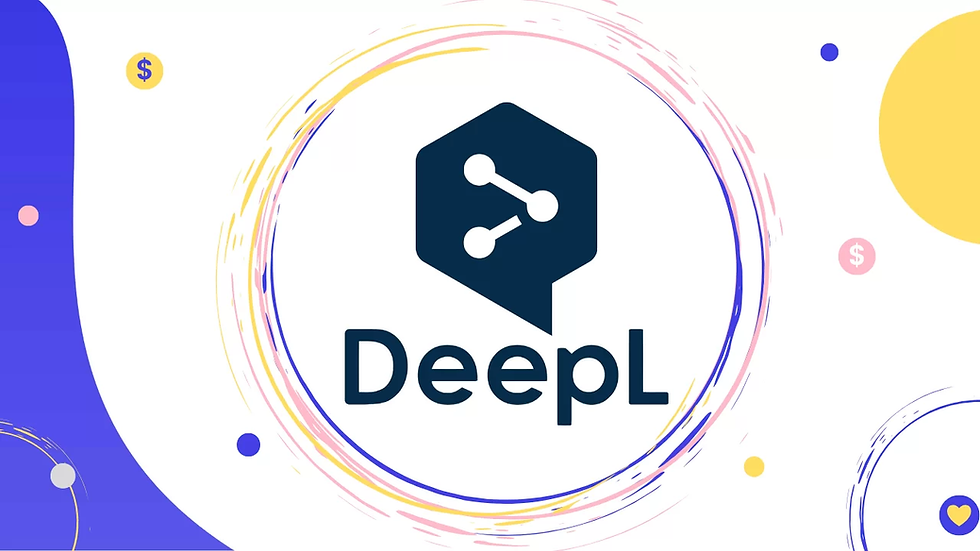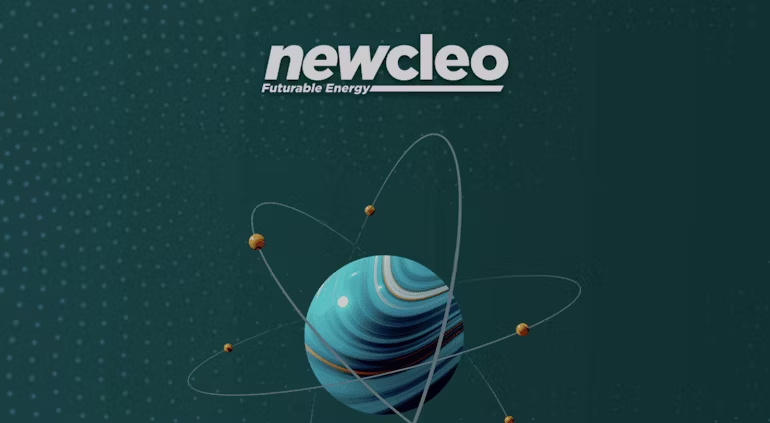DeepL
- Shaurya Garg

- Aug 13
- 4 min read
In today's hyper-connected world, effortless multilingual communication has emerged as a core necessity and yet typical human translators fail to deliver in today's world if the goal is nuanced, articulate, and culturally aware communication. DeepL is working to change this state of affairs with its AI-powered language technology, offering translations that are more accurate and natural. Founded by Jarosław “Jarek” Kutyłowski in 2017, DeepL began as a side project with Linguee, using only seven European languages. Using neural network architectures, it evolved from convolutional models to transformer-based models, and even used to run on a 5.1-petaflop supercomputer in Iceland. The firm quickly gained a reputation for outperforming other applications in independent blind tests. Now the company has over 30 supported languages, millions of users, and is used by over 200,000 organizations around the world.
The firm's offerings are provided through the web interface, desktop and mobile apps, browser extensions, and an extensive API. DeepL Pro, its primary subscription service, removes usage limits on translation, adds better features including custom glossaries, and provides enterprise-level privacy, ISO 27001 and SOC 2 compliance, single sign-on, audit trails, and Bring Your Own Key (BYOK) encryption. Additionally, its reference applications DeepL Write, which improves tone and clarity, and DeepL Voice, which translates spoken language in real time, add further value for both casual users and professionals. The document translation capabilities for applications like Word, PowerPoint and PDF have made it a favourite amongst industries needing precision and confidentiality, like legal, healthcare and banking.

Since it was founded, the company has been growing very quickly. The company launched with 22 employees in 2017, grew to more than 400 employees by 2022, reached over 900 employees in 2024, and then exceeded 1,000 employees in 2025. The firm operates from its headquarters in Cologne, Germany, as well as offices in the United Kingdom, Netherlands, the United States (including technology operations in New York City), Japan, and Poland, and its technology is available in over 228 markets around the world. DeepL has many notable global customers, including Deutsche Bahn, Coursera, Nikkei, Panasonic Connect, Harvard Business Publishing, and various governmental organizations, and 50% of Fortune 500 companies rely on its technology.
Investor confidence in DeepL has been unwavering. In January 2023, the firm became a unicorn with a valuation of more than $1 billion after raising over $100 million from investors including IVP, Bessemer, and Atomico. Just over a year later, the company raised $300 million in May 2024 to achieve a valuation of $2 billion led by Index Ventures, and joined by ICONIQ Growth, Teachers’ Venture Growth and returning investors, making it the most valuable AI startup in Germany. While DeepL has not officially disclosed profits, industry estimates place their annual revenue at ~ $690 million, with ~ $435,000 in revenue per employee. The firm has strong recurring revenues and high operational efficiency, the evidence suggests that profitability is achieved or very close. DeepL operates a freemium model; it offers a free version with usage limits per day and Pro subscription tiers for individuals, teams, and enterprises alike. All Pro subscription tiers remove those usage limits, offer unlimited document translation, and have some enhanced features that the other tiers do not offer (e.g., custom glossaries, priority data and privacy). For API users, its bills users per million characters translated and is in line with the entire industry (but slightly more), this tailored focus on quality and accuracy gives the company a slight edge in pricing. DeepL earns its revenue principally from subscriptions, enterprise contracts, and API licensing. This provides a revenue stream that is relatively predictable recurring revenue and allows for potential growth across many markets. This model has positioned the firm, both as a favorite for consumers and as an enterprise technology powerhouse.
Although DeepL has a clear advantage over the competition with its unrivaled translation quality, the company should not become complacent. Google Translate was widely recognized by casual users because of its hundreds of languages, free service, and quality with everyday language, but it could not compete with the firm’s fluency with complex text. Microsoft Translator is integrated into Office products and Azure, was developed for commercial use with a focus on enterprise privacy, and customization while providing much less natural output in nuanced situations. The other challengers include Unbabel, which uses a combination of AI and human input for translation but is focused on customer service solutions, and localization tools such as Lokalise, Smartling, Crowdin, Smartcat, and memoQ which are focused on translating workflows and process instead of actual quality. While a few of these competitors compete with the company based on price, in particular for API use, DeepL continues to win praise from a large number of users and experts within the industry for intuitively keeping tone, context, and style of content intact while competitors continue to struggle.
With continued innovation, a burgeoning set of features, and a strong commitment to security and accuracy, DeepL stands to grow substantially. The company plans to expand its language offerings, deepen integrations with productivity tools like Microsoft Office and Google Workspace, and expand its generative AI writing assistance. Kutyłowski simply states the mission: “Our mission is to eliminate language barriers and bring people closer together. We want to make communication between cultures as seamless and natural as possible.” With rapid growth, solid investment, and clear technological advantage, DeepL appears to be positioned well for ongoing success and to be a leader in the global translation and language AI field for several years to come.
Click here to access DeepL's website.









Comments